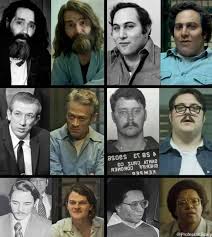The Impact of Mindhunter on the Psychological Thriller Genre

Introduction
The Netflix series Mindhunter, which first premiered in 2017, explores the early days of criminal psychology and criminal profiling at the FBI. Its premise revolves around the interviews conducted with serial killers to understand their motives and psychology. The show has gained significant acclaim due to its detailed storytelling, dynamic character development, and its relevance to current societal issues, making it an important topic for discussion.
Overview of Mindhunter
Mindhunter is based on the true crime book “Mindhunter: Inside the FBI’s Elite Serial Crime Unit” by John E. Douglas and Mark Olshaker. The series follows FBI agents Holden Ford and Bill Tench, along with psychologist Wendy Carr, as they interview infamous serial killers, such as Edmund Kemper and Jerry Brudos. The narrative takes place in the late 1970s and early 1980s, a time when the understanding of criminal psychology was burgeoning.
Critical Reception
The show has been praised for its intellectual depth, with critics noting how it delves into the psychological complexities of its characters rather than relying on conventional crime drama tropes. Filmmaker David Fincher, who directed several episodes, incorporates a moody atmosphere and meticulous attention to detail that keeps viewers engaged. Moreover, its authentic representation of the historical context surrounding law enforcement and criminal psychology adds credibility to the narrative.
Cultural Impact and Relevance
While the show is rooted in historical events, it also resonates with contemporary themes of violence, mental health awareness, and the complexities of human nature. As society grapples with issues surrounding crime and punishment, Mindhunter encourages viewers to reflect on the implications of criminal behaviour and the ethics of profiling. The psychological insights and discussions facilitated by the show contribute to a broader understanding of societal anxieties related to crime.
Conclusion
In conclusion, Mindhunter is more than just a true crime drama; it is a significant exploration of the human psyche and its relation to crime. Its impact on the genres of psychological thrillers and true crime television is undeniable, leaving audiences with lingering questions about morality, justice, and the nature of evil. As viewers continue to seek out content that challenges their perceptions, Mindhunter stands as a vital contribution to the dialogue surrounding criminal psychology.
